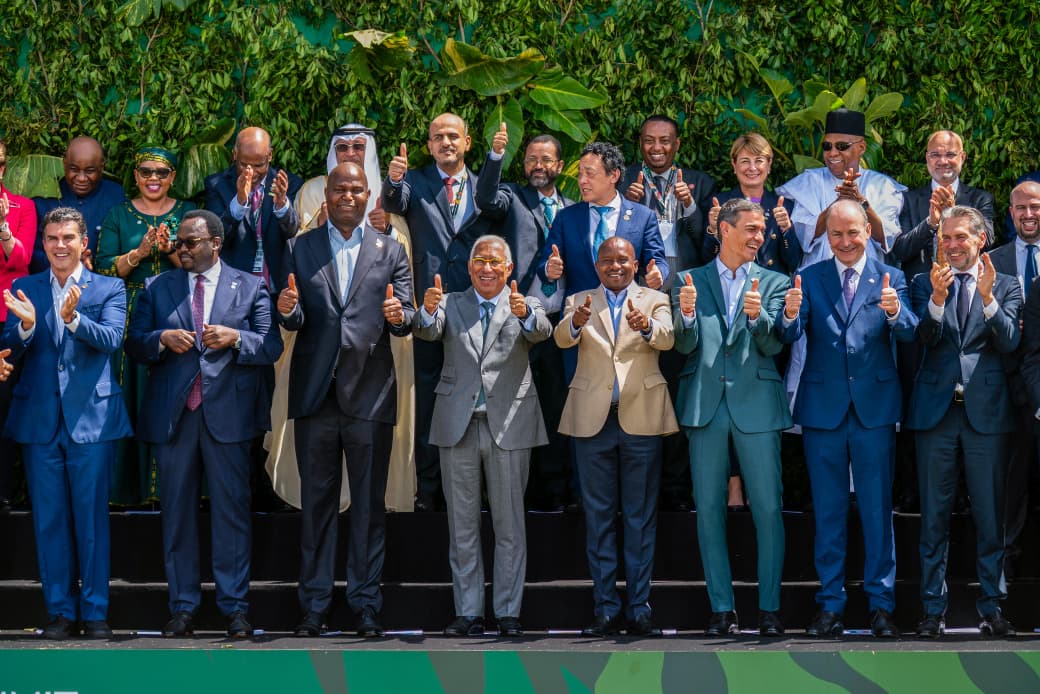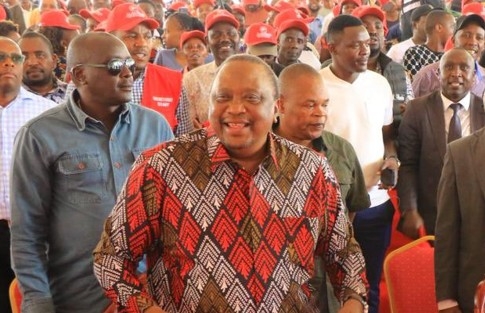
 Deputy President Kithure Kindiki (in biege blazer) with other world leaders attending the 30th Conference of Parties (COP30) of the United Nations in Baku, Brazil, November 7, 2025. /DPCS
Deputy President Kithure Kindiki (in biege blazer) with other world leaders attending the 30th Conference of Parties (COP30) of the United Nations in Baku, Brazil, November 7, 2025. /DPCS
Deputy President Kithure Kindiki has said Africa holds the key to the world’s transition to clean energy.
Kindiki cited the continent’s vast renewable resources, critical minerals, and young population as vital assets for global green growth.
Speaking during the Leaders’ Summit ahead of the 30th Conference of Parties (COP30) of the United Nations Framework Convention on Climate Change (UNFCCC) in Belem, Brazil, Kindiki said Africa’s potential remains largely untapped despite its central role in the fight against climate change.
He noted that Africa possesses the world’s largest renewable energy reserves and critical minerals needed for the green transition, yet receives less than 2 percent of global renewable energy investments.
“Of the three trillion dollars invested in renewable energy over the last two decades, Africa has received a negligible share, leaving over 600 million people without access to energy,” he said.
The Deputy President said Kenya exemplifies Africa’s readiness for a clean energy future.
“Our energy grid is now 93 percent green and will reach 100 percent in the next four years,” he said, adding that Kenya has submitted an ambitious Nationally Determined Contribution (NDC 3.0) to green its energy and industrial sectors.
He linked Kenya’s and Africa’s climate efforts to the resolutions of the Nairobi and Addis Ababa African Climate Summits of 2023 and 2024, which positioned the continent as a “global green growth hub.”
Kindiki argued that Africa should be viewed not as a risk but as an economic opportunity for the world.
“The world must stop viewing Africa as an investment risk and instead see it as a partner offering abundant, affordable, and clean energy for global manufacturing,” he said.
The Deputy President criticized the slow pace of global climate financing, warning that every unfulfilled commitment carries a human cost.
“Kenya alone needs 62 billion dollars by 2030 to implement its climate commitments. So far, we have secured only 50 million — a mere 0.08 percent,” he revealed.
He urged world leaders to make COP30 a turning point by overhauling the climate financing architecture.
“We must shift from incremental pledges in billions to the trillions required to match the scale of the crisis,” he said.
Kindiki called for the operationalization of the Baku-to-Belem Roadmap to mobilize $1.3 trillion by 2035 for developing countries.
He also pressed for reforms to make global finance more accessible and affordable and urged inclusive policies that empower women, youth, and farmers.
“The benefits of the green economy must be shared equitably across communities and generations,” he said.
The Deputy President concluded by emphasising that climate justice demands urgent, coordinated action — and that Africa must be at the center of the global clean energy transition.












![[PHOTOS] Uhuru leads Jubilee grassroots meeting in Murang’a](/_next/image?url=https%3A%2F%2Fcdn.radioafrica.digital%2Fimage%2F2025%2F11%2F0b2a49cd-52fb-4a92-b9dc-26e253825a4a.jpeg&w=3840&q=100)
